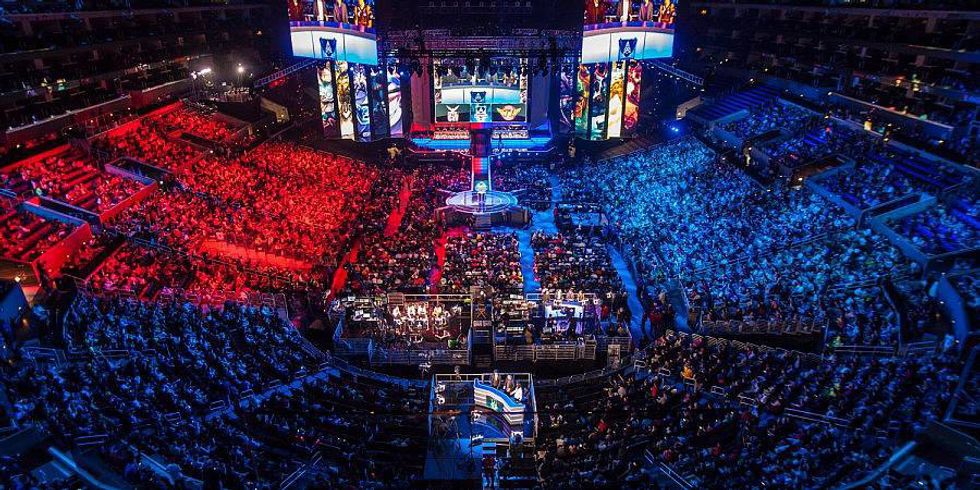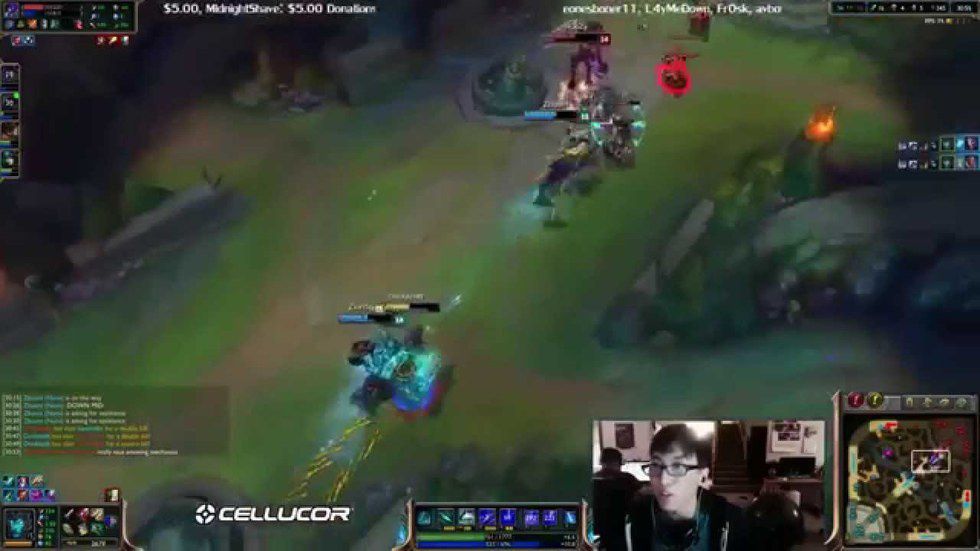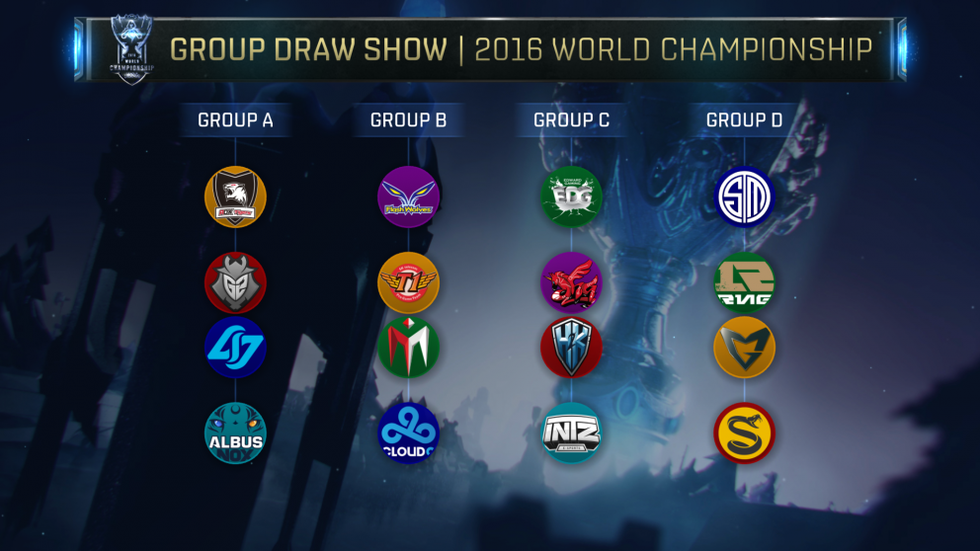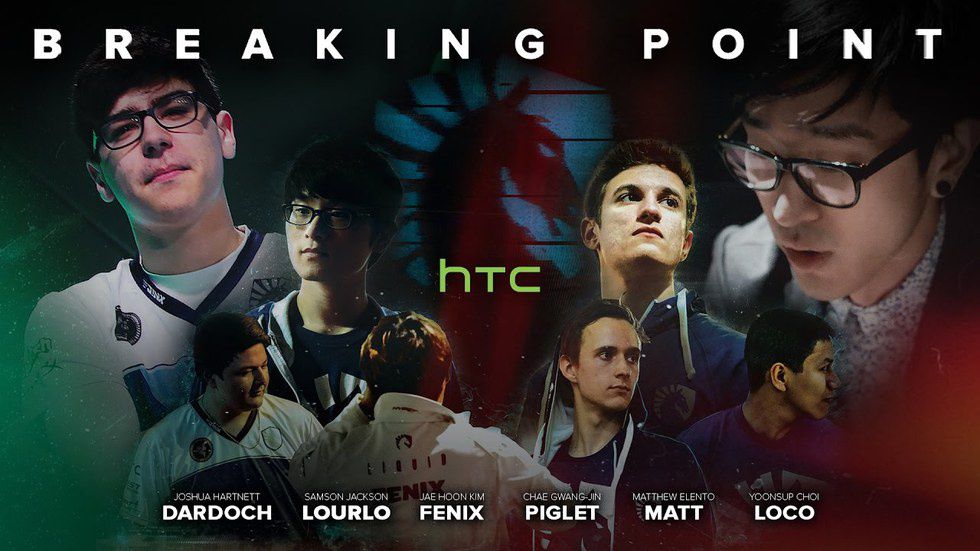2016 has been an interesting year for competitive gaming and card games. League of Legends, after an intense and wild championship series, proved to be a power house in the e-sports genre, while massive events such as Evo thrived in June/July of 2016, while games like CS:GO, Dota 2, Call of Duty, and Starcraft still manage to pull large viewing number from streaming, and bringing in a large amount of revenue. Despite facing a barrage of criticism, this alternative form of sporting events have shown that they draw in a distinct audience, pull in a large number of revenue, and has the potential to change the face of sports all together.
Recommended for you
League of Legends and Dota 2 are the largest MOBA games played World Wide. With insanely high numbers of monthly players and active accounts, there is no doubt that these games are popular, but what about he competitive scene of these games? With professional players making high incomes, and hosting world finals and events in large complexes while streaming around the world online, these games have to reach to become successful spectator sports. With the inclusion of e-sports on ESPN.com, and the start of fantasy League of Legends, the form is morphing into everything American Football and Baseball have in recent years, while proving to be targeted at a younger, noticeably primarily college level audience. With an ever growing interest from investors, new media formats come to help the platform grow and spread, and as the games themselves change, E-sports seem geared to enter a new level of popularity rivaling traditional sports. But why? These games, League of Legends, Dota 2, Overwatch, CS:GO, are being recognized more and more as legitimate sports, and, as a gamer and a member in some of those games, i am excited. But, two years ago, I was not interested in competitive play. I knew the teams and the names of the more famous players, but I felt disconnected to that high level of play. So, here I am, scratching my head, wondering, "What changed?"
Deep down inside, I never challenged the validity of E-sports. They require a lot of training, and often sacrifice personal time in the name of staying on top of their game for their short window of possible success. They are thrown into stressful large venues, possibly live with strangers and are told to form a strong, and face a great deal of haggling and criticism from the community. They obviously face a great deal of esteem stress, and still have to physically and mentally train, and for that they are worthy of praise. What sets theses guys apart from tradition athletes is there unique personalities. Now, do not get me wrong, guys like Cam Newton, Tom Brady, Richard Sherman, and Lebron James all have unique identities, but when it comes to E-Sports, these players are constantly interacting with there fan base. When they are not competing on the pick stage, most pro-players make a living playing the game on platforms such as Youtube and Twitch. Twitch, in particular, allows fans to not only watch, but talk to the players, sometimes tipping them as a sign of their devotion to the player, or allegiance to their team. Streamers become synonymous with a particular attitude or mindset, making them some of the open athletes in any form. However, pros are not the only ones streaming. Players across all skill levels steam online, and garner fan bases, which is perfectly fine, but it makes the professional level of play harder to identity and appreciate. However, where player streams are fun, and are overall a relaxed environment, team play is just as intense as any other professional sport.
Like any other sport, team loyalty and supremacy are key. For games like Dota 2 and League of Legends, division are divided by region. North America, Eastern and Western Europe, Korea, Japan, China, South America, and so on, adding a level of region dominance. For the League of Legends finals, held in October, despite the final two teams competing for the title of World Champs both hailing from Korea, the fans in the stable center chanted 'TSM,' a favorite from NA that had not moved far into the tournament. What makes the devotion so high is a number of things. These teams represent your region, and serve as the 'home team' despite not being assigned city titles like NFL teams. They compete on the global scale, and seek to make a name not only for them selves, but their region. Along with intense rivalries, like that between Korea's Rox Tigers and SKT T1, the team level of e-sports proves to be a combination of many factors. All and all, this high level of professional e-sports, regardless of which game, is full of factors that make them stick out from traditional sports, but that comes at a price.
In this 2016 documentary, Breaking Point, we take a look at the life and times of one League of Legends NA teams, Team Liquid. It shows the turmoil of being a known personality. It also shows the downsides to a negative team relationship, along with showing the passion and dedication these professional players have for the game. It is literally everthing to these players that they win, but when faced with adversity and tough losses, the team loses hope. While some member comes off as rude, mean, and hard to work with, they all show the passion and time they put into the game, which allowed me to appreciate the time and devotion of all professional players, regardless of team or region. While the industry is in a weird transition, growing constantly and becoming more known, it is an amazing spectacle to watch. As the 2016 competitive year draws to a close, fans, players, teams, and regions alike all look forward to watching the technical and mental skill of players, across all games, in the coming years.






















